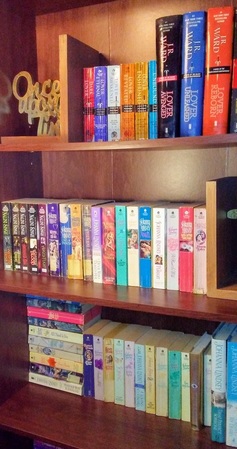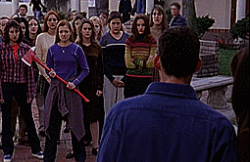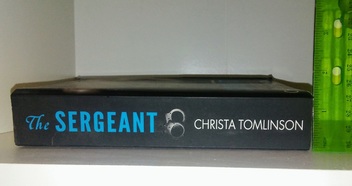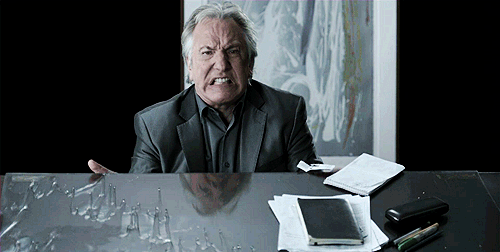|
Hello there! Thanks for joining me as I continue to talk about writing. Today’s post is aimed at answering a few common questions on what makes a romance novel a romance novel. As I stated before, I’m not an expert. But I am a giant nerd. I will research things until the cows come home. If I had cows. I don’t, so I research until my brain feels appropriately full of knowledge. I know the world of publishing is always a-changing, but these are fairly basic guidelines to follow when writing romance.  Question 1 - What is a romance? A romance is a story that predominately focuses on the growing relationship between the main characters, or MCs. It HAS TO END WITH EITHER A HEA - HAPPILY EVER AFTER OR HFN – HAPPY FOR NOW. Yes, I wrote that in all caps. Yes, I bolded it. If the characters aren’t together at the end because one of them dies or they decide to go off on separate paths or whatever, it isn’t a romance. It’s fiction with romantic elements. If you would like more official wording, the below descriptions are from the Romance Writers of America - the professional organization for the romance genre: A Central Love Story: The main plot centers around individuals falling in love and struggling to make the relationship work. A writer can include as many subplots as he/she wants as long as the love story is the main focus of the novel. An Emotionally Satisfying and Optimistic Ending: In a romance, the lovers who risk and struggle for each other and their relationship are rewarded with emotional justice and unconditional love. Readers purchase a romance because they want assurance that they are buying a love story with a happy ending. That’s not to say you can’t write a story that doesn’t have that happy ending. You can, but you will have some dissatisfied and possibly pissed off readers if you write that story and list it as romance. A romance reader isn’t looking for the bittersweet ending. They want the fluff and happiness. They’ll be confused if they go into a book expecting a happy ending and don’t get it. The HEA/HFN rule is important. Don't get special snowflake syndrome. You can't sidestep this rule because your story is amazing and you think readers will appreciate your new twist on the genre. If you’ve written a story where the characters do not end up together, that’s great and I’m sure it’s lovely. But please, market it correctly as fiction and not romance. Question 2 - What’s the difference between a HEA and a HFN? With a happily ever after, the couple is together for the long haul. They either get married or the writer makes it clear that there will be a wedding or commitment ceremony of some sort. With a happy for now, the couple (or throuple) is committed, but there may not be any talk of marriage. They are happy and monogamous. Question 3 - What’s the difference between erotic romance and erotica? Hey, you can make your characters super-duper nasty who boink on every damn page if you want. But if the story focuses on the sexual journey and it doesn’t end with a HEA or HFN it’s erotica. If the characters have lots of graphic sex but also an emotional story arc and are committed to each other at the end, it’s an erotic romance. Question 4 - How long should a book be? This one is a little trickier and there’s lots of wiggle room. And of course, it varies by genre. You wouldn’t expect a children’s book to have the same word count as an adult romance.
Question 5 - What’s the difference between a serial and a series? A book in a series has a complete ending. A real THE END. In romance, the lovers are together. There may or may not be a cliff hanger for other plot points. A serial is an ongoing story. The characters may not be in love and committed until the final book in the serial. Dear god in book heaven, please let your readers know if your story is a serial. I can grudgingly deal with a cliff hanger on non-major plot points, but starting a story only to realize I’ve gotta wait for and read multiple other books to get to the end of the main story? I will jump through my Nook to come after you if you swerve me like that.  An angry mob coming after you for writing your MC cheating on his love interest. An angry mob coming after you for writing your MC cheating on his love interest. Question 6 – Can I write cheating in my romance novel? Oh, boy. Well, you can. *ducks barrage of flaming arrows from readers* But it’s not appreciated as a plot point. The general rule is that the MCs do not share intimacy with anyone else once they have met and established a connection with one another. I may have broken this rule in Bad Boys Need Love Too. But he’s a bad boy! He’s supposed to break the rules! *ducks another barrage of flaming arrows from readers* Romance readers DO NOT like cheating in their novels. It’s one of the few things they are unlikely to forgive a hero for, so think hard before you decide to write any kind of cheating scene. And be ready for those flaming arrows to come your way if you do. That's the romance novel in a nutshell! If you'd like to know more about what makes up a romance or how to write one, I recommend reading On Writing Romance by Leigh Michaels. It's a great how-to book for the genre. If you have any questions for me or blog post topic suggestions, please let me know in the comments. Next week I'll be back to talk about drafts and editing. Thanks for reading! Christa www.ChristaTomlinson.com Follow me around the internet! Facebook, Twitter, Instagram, Goodreads View my titles on Amazon
3 Comments
Teresa
12/9/2016 07:58:03 am
Thanks, interesting,
Reply
Leave a Reply. |
Christa's Blog
My rambling and not at all edited thoughts on romance novels, writing, and pop culture. Tags
All
|



 RSS Feed
RSS Feed
